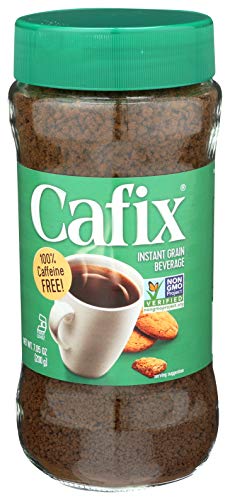Easiest Ways to Go Caffeine Free
Either you or someone you trust decided that you should go caffeine free. Easier said than done but it is definitely possible. So how can you do it?
Why is Caffeine Addictive?
Caffeine is considered addictive due to its impact on the brain's chemistry. When consumed, caffeine blocks the action of adenosine, a neurotransmitter responsible for promoting relaxation and sleepiness. By inhibiting adenosine, caffeine increases the release of other neurotransmitters like dopamine and norepinephrine, which elevate mood and alertness. With regular consumption, the brain adapts to the presence of caffeine by creating more adenosine receptors, leading to tolerance and the need for higher doses to achieve the same effects.
What Can I Expect if Going Caffeine Free?
Abrupt cessation of caffeine can result in withdrawal symptoms such as headaches, fatigue, irritability, and difficulty concentrating, further reinforcing its addictive potential. Therefore, take it slow and you may not feel any negative affects at all.
What Are the Benefits of Going Caffeine Free?
By eliminating caffeine from your diet, you may experience improved quality of sleep, reduced anxiety and jitters, stabilized blood sugar levels, and enhanced hydration. Cutting out caffeine can also lead to better dental health by lowering the risk of teeth grinding and reducing acid erosion. Additionally, going caffeine-free can help break the cycle of dependence on stimulants for energy and focus, allowing your body to naturally regulate its energy levels throughout the day.
What Is the Best Way to Go Caffeine Free?
Just like any dietary change, always check with your doctor first. Once you have the all-clear, consider some of these steps:
Switch out that extra cup of coffee for herbal teas or caffeine-free alternatives like rooibos or peppermint tea. Replace caffeinated sodas with sparkling water or fruit-infused water.
Slowly decrease the size of your caffeinated beverage, perhaps reducing one ounce per day.
Stay hydrated with water to help combat caffeine withdrawal symptoms.
Get regular exercise to boost energy levels naturally without caffeine.
Ensure you get enough sleep to reduce the need for caffeine to stay awake.
Try mindfulness techniques or meditation to manage stress without relying on caffeine.
Snack on energy-boosting foods like nuts, seeds, and fresh fruits.
Seek support from friends or join online communities to stay motivated on your caffeine-free journey.
You Can Do It!
If you are like me, you may miss the taste, smell and comfort of a great cup of coffee. Luckily, there are some great alternatives out there.
Good luck on your journey. After 10 years totally caffeine free, I can tell you it’s totally worth it!
Please note: This blog uses affiliate links, meaning that at no additional cost to you, I earn a small commission if you click-through and make a purchase.
OVERALL DISCLAIMER: I am not a nutritionist and the contents of this site are my opinion only so please check with your doctor when consuming any products. I have no control over any products displayed and ingredients and pricing may change without notice.
AFFILIATE DISCLAIMER: This website uses affiliate links, meaning that at no additional cost to you, I will earn a small commission if you click-through and make a purchase. As an Amazon Associate, I earn from qualifying purchases and feature products that I believe in and use myself. Your support means the world to me. THANK YOU for purchasing items through this site as it is the only way this site earns money to keep it operational and provides you with some great, curated products!



